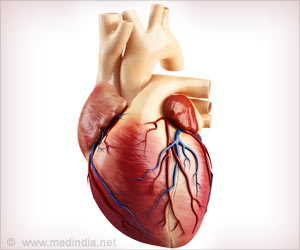Follow expert advice by promoting proactive heart health through lifestyle changes and medical care.

Promoting Cardiovascular Health in the Developing World: A Critical Challenge to Achieve Global Health
Go to source). 1. Adopt a Balanced Diet:
A balanced diet comprising fruits, vegetables, whole grains, lean proteins, and healthy fats is fundamental to heart health. Avoiding saturated fats, trans fats, and excessive sugars helps mitigate risks associated with obesity and high cholesterol (2✔ ✔Trusted Source
Cardiovascular diseases (CVDs)
Go to source).
2. Exercise Regularly:
Regular physical activity, such as brisk walking, jogging, cycling, or swimming, strengthens the heart muscle, improves circulation, and boosts cardiovascular fitness. Even light activities like gardening contribute to heart health by burning calories and reducing cholesterol levels.
3. Manage Stress Effectively:
Stress management techniques, including meditation, deep breathing exercises, or engaging in hobbies, help relax the mind and body, reducing the risk of heart disease associated with chronic stress.
4. Monitor Blood Pressure:
Regular monitoring of blood pressure helps identify hypertension, a significant risk factor for heart attacks and strokes, enabling timely intervention through medications and lifestyle changes.
5. Get Regular Check-ups:
Routine medical check-ups, including cholesterol screenings and ECGs, are crucial for early detection of potential heart issues, allowing for timely intervention and prevention of severe complications.
6. Quit Smoking:
Smoking cessation significantly improves heart health by reducing the risk of blood vessel damage, high blood pressure, and atherosclerosis.
Advertisement
Moderating alcohol intake reduces the risk of elevated blood pressure and triglyceride levels associated with excessive alcohol consumption.
8. Maintain a Healthy Weight:
Sustainable weight management through a balanced diet and regular exercise lowers the risk of obesity-related cardiovascular diseases (2✔ ✔Trusted Source
Cardiovascular diseases (CVDs)
Go to source).
Advertisement
Adequate sleep of 7-8 hours per night promotes heart health by reducing the risk of heart disease associated with sleep deprivation.
10. Stay Hydrated:
Proper hydration helps maintain cardiovascular function and reduces the risk of blood clot formation and heart strain.
11. Control Cholesterol Levels:
Regular cholesterol screenings and a diet low in saturated fats help manage cholesterol levels and prevent plaque build-up in arteries.
12. Manage Diabetes:
Comprehensive diabetes management through diet, exercise, and medication reduces the risk of cardiovascular disease associated with diabetes-related complications.
Taking proactive steps to care for the heart, including adopting a balanced diet, regular exercise, stress management, and monitoring key health indicators, significantly reduces the risk of cardiovascular disease. Dr. Niranjan Hiremath emphasizes the importance of preventive measures and lifestyle modifications in maintaining heart health, underscoring the need to take charge of one’s health to prevent heart disease.
References:
- Promoting Cardiovascular Health in the Developing World: A Critical Challenge to Achieve Global Health - (https://www.ncbi.nlm.nih.gov/books/NBK45696/)
- Cardiovascular diseases (CVDs) - (https://www.who.int/news-room/fact-sheets/detail/cardiovascular-diseases-(cvds))
Source-Medindia









